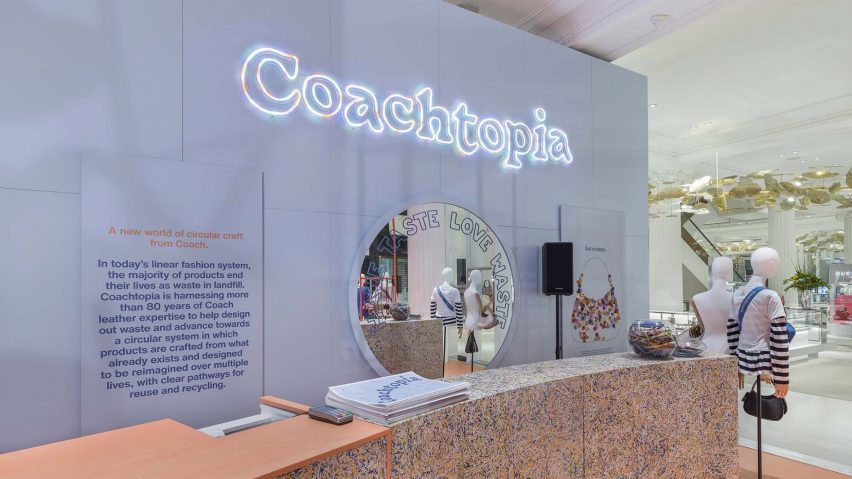
Studio XAG creates fixtures for Coach pop-up using discarded leather scraps
A colourful, reconstituted leather made from cutting room scraps was among the recycled materials used to create the fixtures and fittings for Coachtopia, a London pop-up store for American label Coach.
Located in the Wonder Room at Selfridges in London, the temporary store was created to launch a new collection of Coach products crafted from reused leather bags and recycled materials.
Called Coachtopia, the collection seeks to challenge fashion's linear system where most products end up in landfill.
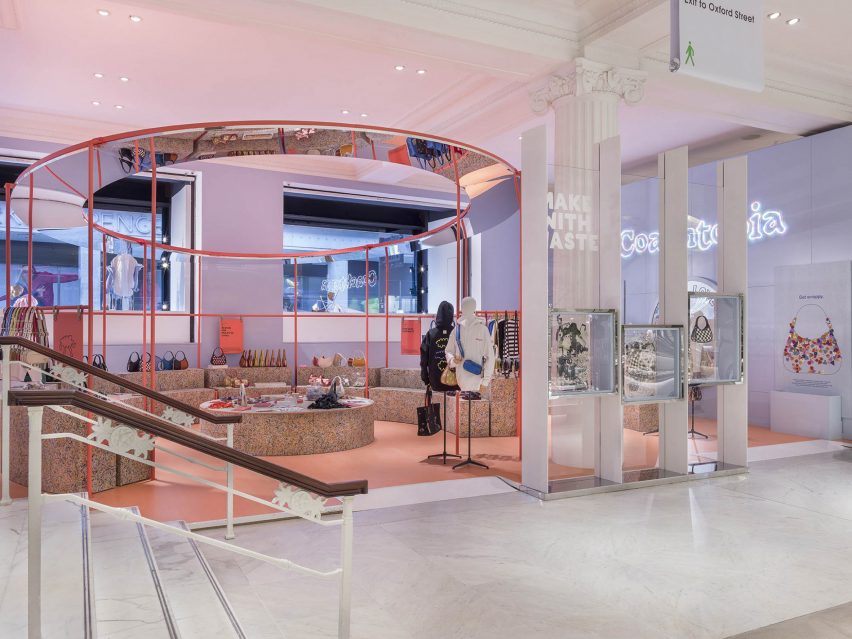
Each of the products in the Coachtopia collection has a clear pathway for reuse and recycling, according to the brand, and comes with an embedded NFC chip that tracks its lifecycle.
Chosen by Coach for its sustainable approach and B Corp-certified status, retail experience agency Studio XAG was commissioned to create a temporary store space to launch the product line.
The resulting space, which features a modular display system made of recyclable parts that slot together, has been shortlisted in the retail interior (small) category of Dezeen Awards 2023.
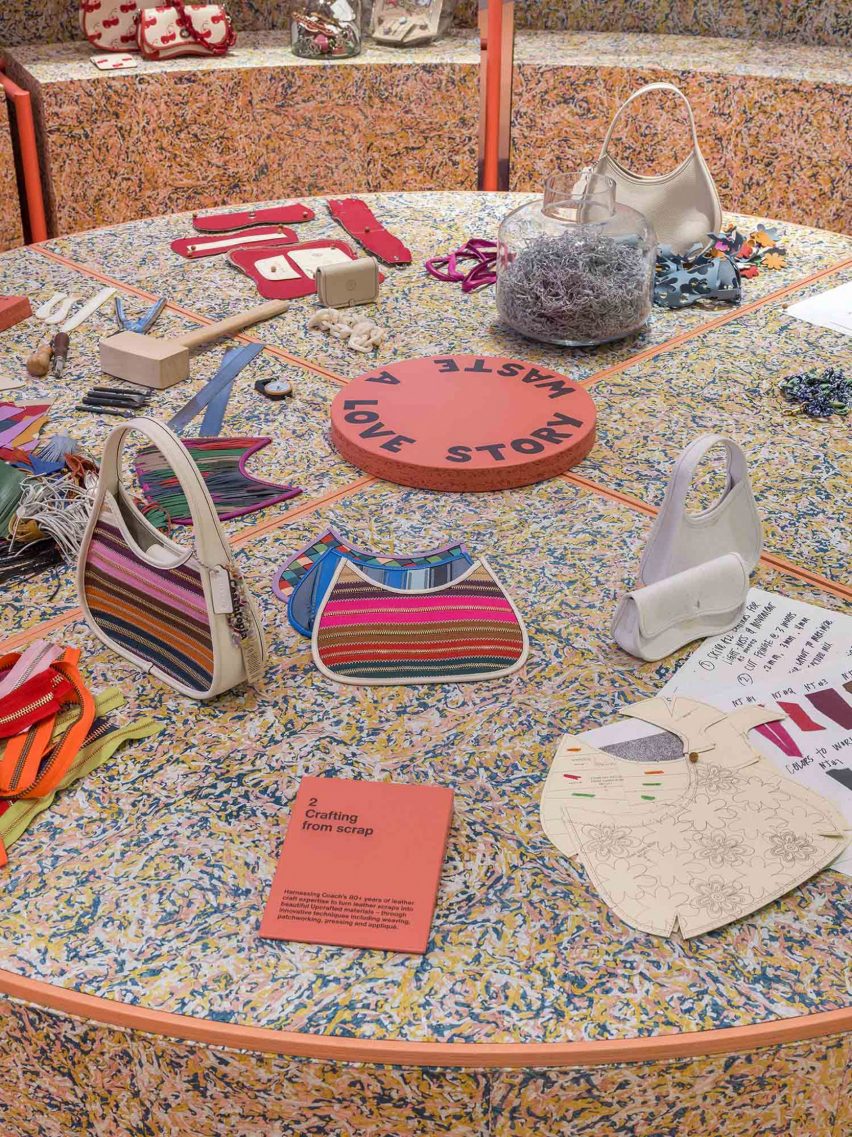
"The Coachtopia product line is designed to be 'circular from the start' – considering the future life of a product proactively, rather than reactively," Studio XAG said.
"We mirrored Coach's circular ethos for the collection through three approaches to the physical space."
The first approach was to keep the use of virgin materials to a minimum by using repurposed neon flex, recycled leather scraps and Ecoboard – a material made from agricultural waste.
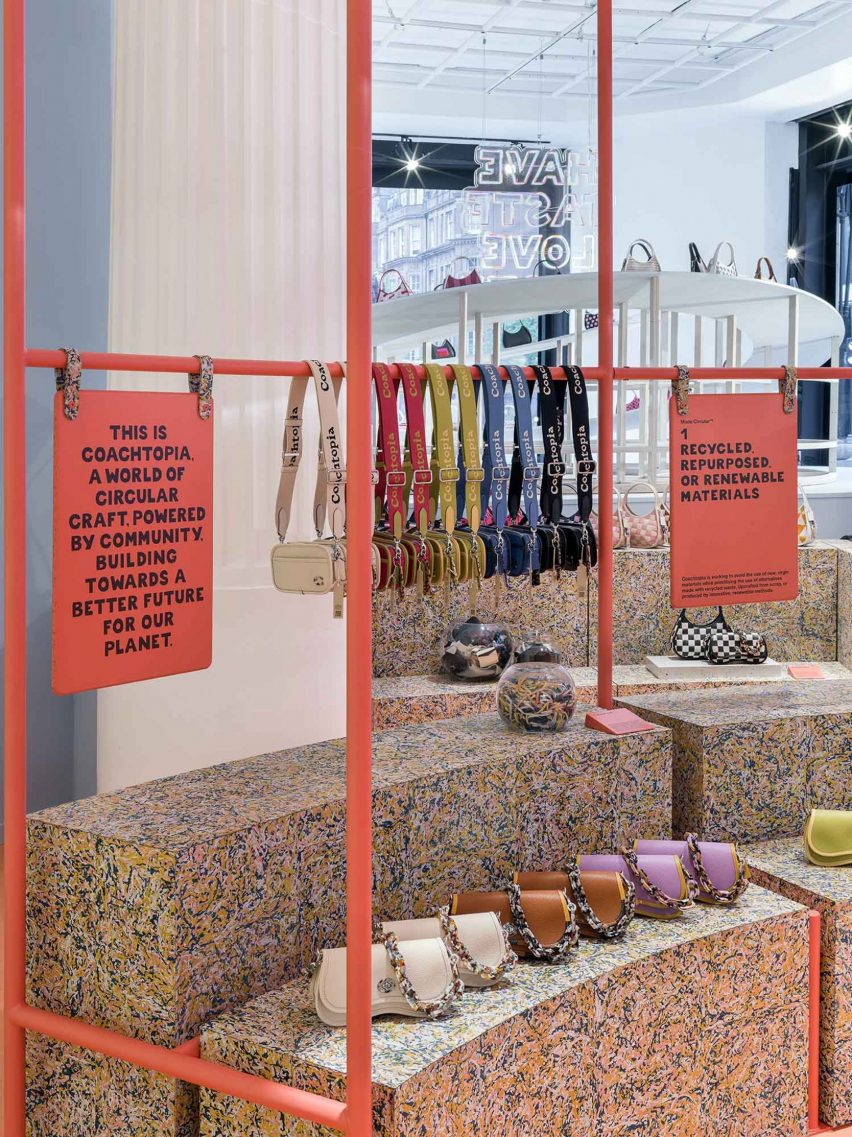
Secondly, Studio XAG ensured that the modular fixtures, like the products on sale, were 'made to be remade' and could be disassembled and repurposed at the end of their current use.
Finally, the studio selected materials that offer meaningful recycling opportunities at their eventual end of life and said it considered the embodied carbon, toxicity and afterlife opportunities in every component.
"The challenge was to create a pop-up that would have visual impact, but could be dismantled and rebuilt in new locations, again and again," explained Studio XAG.
"Any items which couldn't be used in a future pop-up, such as the hoarding and some of the wall panels, were donated to Selfridges to use in their future launches."
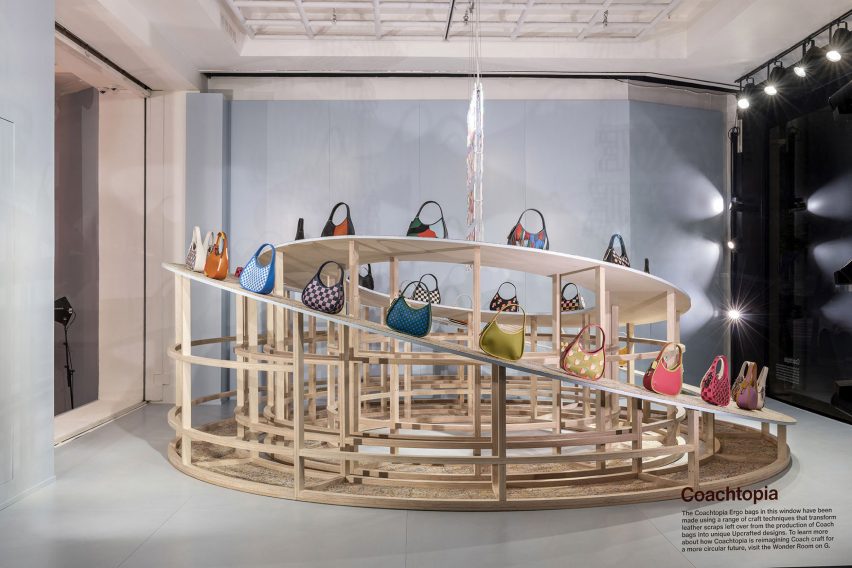
The collection's slogan Have Taste Love Waste, which serves as a statement of intent and action, was boldly written in neon signage crafted from offcuts of neon flex that would otherwise be discarded.
The lighting will be reused for other key stores, including Coach's flagship on Regent Street.
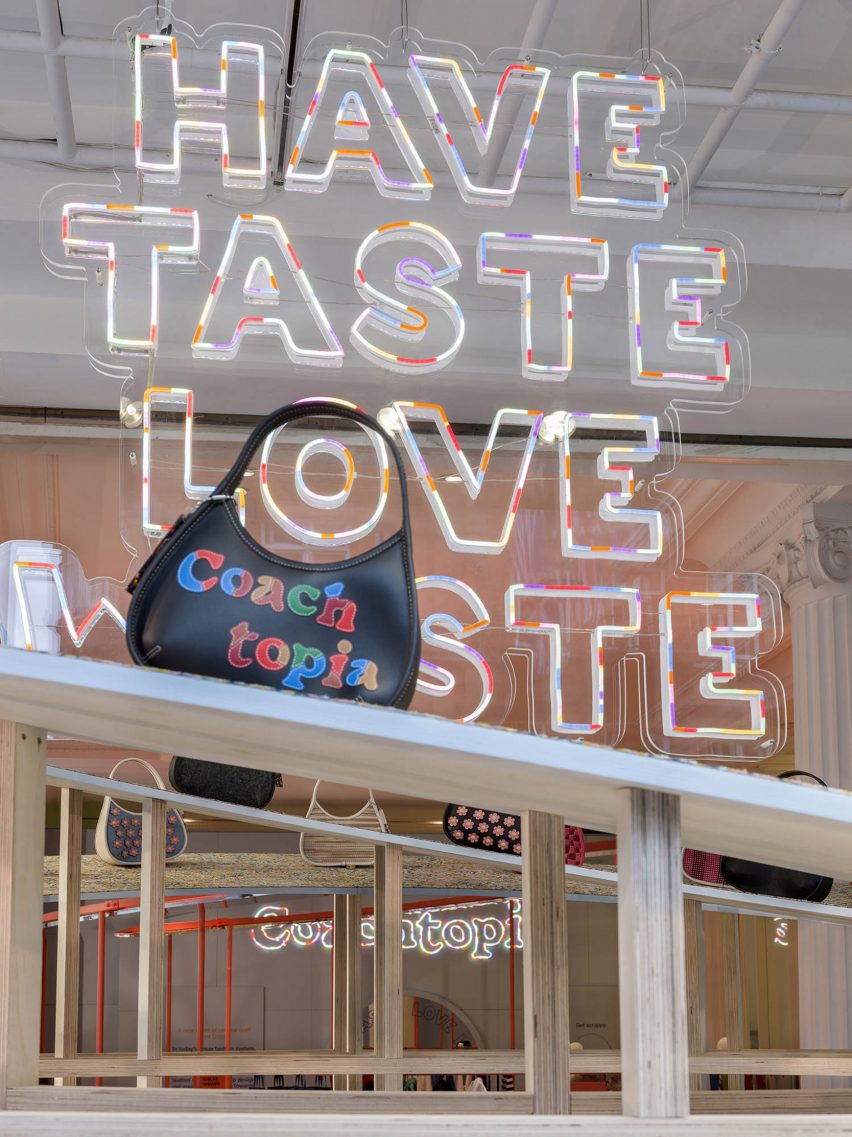
"To create a sustainable lighting solution was a challenge, as most neon alternatives are manufactured from virgin materials," explained Studio XAG.
"To resolve this, we contacted a lighting manufacturer and requested that they collect all their offcuts from previous projects over the months leading up to the installation of Coachtopia," it added.
"All of these offcuts were then meticulously threaded together to make a unique set of signs, made up of hundreds of individual scraps which would have otherwise been thrown in the bin."
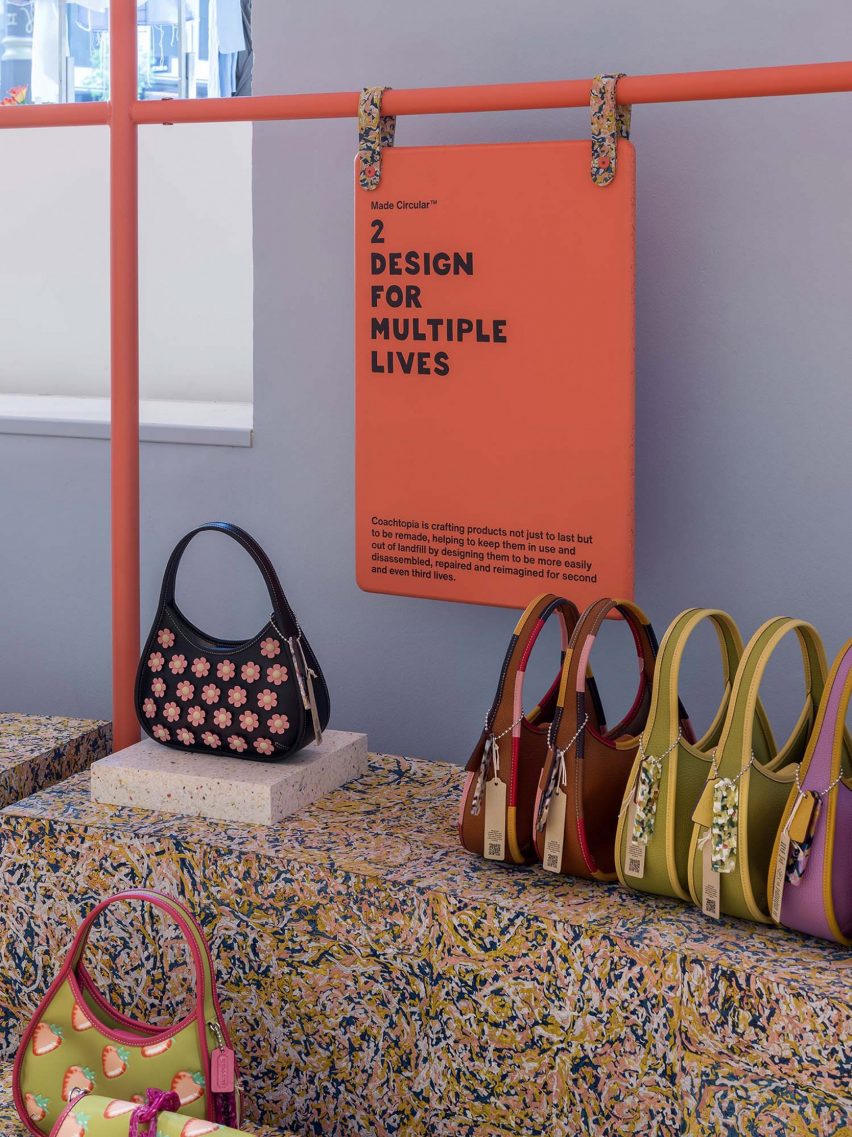
The Coachtopia tables and display units are covered in reconstituted leather made using scraps from the cutting-room floor that might have otherwise gone to landfill.
These modular pieces can easily be taken apart using a system of slotting together rather than permanent glueing or fixing.
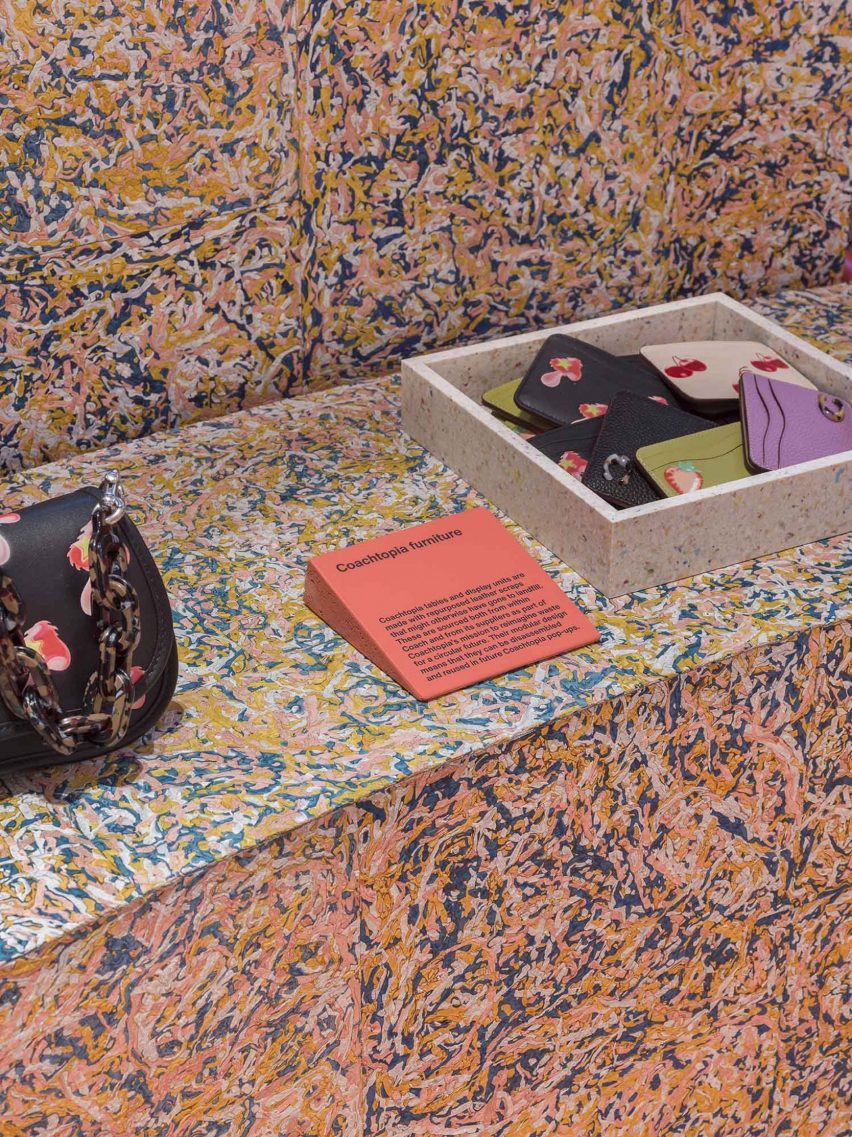
Ecoboard – a carbon-negative material manufactured in the Netherlands from seasonal agricultural waste like straw, seeds, rice and corn – was used in place of MDF. Unlike MDF, Ecoboard does not emit any damaging organic acids.
"In the Wonder Room, visitors are given insight into what circularity means for the future of fashion," commented the studio. "The space feels exploratory and educational, using sustainable materiality and clear signage as a guide."
Other projects shortlisted in the retail interiors (small) category include a gallery shop in Australia housed in a "translucent bubble" and a steel-clad boutique in Bratislava.